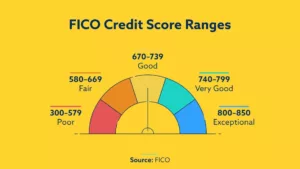 Question: When reviewing my credit report I found hard inquiries made by companies I've never even heard of nor authorized. I am concerned that someone is attempting to gain credit in my name. There have been 9 credit requests in less than 6 months. I'm not sure what to do and the report doesn't provide phone numbers for these business.
Question: When reviewing my credit report I found hard inquiries made by companies I've never even heard of nor authorized. I am concerned that someone is attempting to gain credit in my name. There have been 9 credit requests in less than 6 months. I'm not sure what to do and the report doesn't provide phone numbers for these business.
I will be sending them the required letters, but once that is done I don't know what other steps I might need to take. Can you let me know if I need to be worried beyond sending these letters and having the inquiries removed from my report?
Answer: You should be very concerned if the “hard” credit inquiries are unknown to you. If you have no financial relationship with any of the companies that pulled your credit then there is a real probability fraud has occurred.
Generally a hard inquiry is triggered when a bank or lender accesses your credit report as part of the credit application process. But remember a hard inquiry can also be a result of a collection agency’s skip tracing efforts. Collection agencies can access your credit report as part of the process of locating your whereabouts and finding as much information as possible about you.
Are you positive the credit inquiries are “hard” and not “soft inquiries”? Soft inquiries can result from a variety of events, including but not limited to: Accessing your own credit report; lenders making pre-approved offers; creditors periodically reviewing existing accounts; and you seeking employment or insurance.
Here are a few steps to insure your identity is protected:
1. Fraud Alert. Notify one of the three major credit reporting agencies to request they place a fraud alert on your credit report while you investigate the unauthorized credit inquiries. You will only need to notify one of the credit reporting agencies in order to have a fraud alert placed to all three of your credit reports. Keep in mind a fraud alert may prevent you from being approved for new credit or you may be asked to provide identity information when applying for credit. Experian Fraud Center explains the process in more detail.
2. Credit Disputes. Dispute the credit inquiries directly with the credit bureaus as well as the companies’ fraud department that pulled your credit. The dispute letter should be simple and state something like this: “The credit inquiry on (date) is a direct result of identity theft and I am not the person who authorized the inquiry. Please delete the credit inquiry from my credit report immediately.”
3. Federal Trade Commission. It’s a good idea to create an Identity Theft Affidavit and file a police report. To create an Identity Theft Affidavit, you’ll need to submit a formal complaint detailing the theft to the Federal Trade Commission. Access the FTC Theft Affidavit online here. The FTC also has a hotline at 877-438-4338.
4. Police Report. Once you have a copy of the FTC’s Identity Theft Affidavit take it with you to file a police report. Filing a police report may seem burdensome but it may help you down the line to get the credit inquiries removed.
5. Freeze Credit Reports. This is optional but it will add an extra layer of protection to keep any new accounts from being opened. What a credit freeze does is prohibits creditors from accessing your credit reports or score. But again, keep in mind a credit freeze will also prevent you from being able to obtain instant credit. You always have the option of removing the credit freeze at any time. In order to place a credit freeze you’ll have to contact each credit reporting agency separately and there is a small fee involved. Here are the links to place credit freezes:
http://www.experian.com/consumer/security_freeze.html
https://www.freeze.equifax.com/Freeze/jsp/SFF_PersonalIDInfo.jsp
http://www.transunion.com/personal-credit/credit-disputes/credit-freezes.page
Finally, I know these are quite a few steps to take and it will take some time and effort to complete but in the long run it’s worth it. All of these steps should make it easier to remove the unauthorized credit inquiries.
For now the good news is, inquiries will not cost a lot of points off your score as long as all of your bills are paid on time and your credit balances to credit limit ratios are low. Even though legitimate hard credit inquiries can remain on your credit report for two years; only hard credit inquiries in the last 12 months are calculated in your credit scores. Hard credit inquiries older than 12 months are completely ignored by the scoring model. The best of luck to you.











